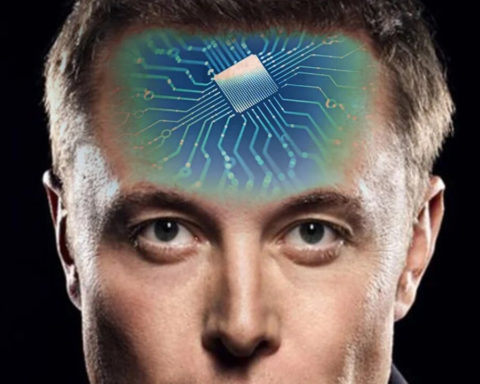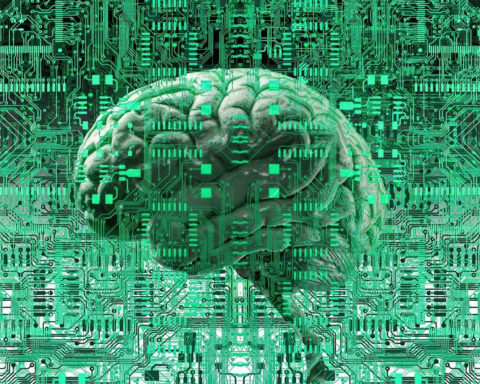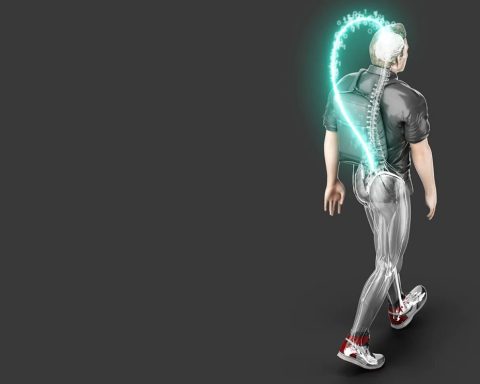READ UP : Our memory, a potential target for cyber attacks
Should we be afraid of memory implants? A recent study echoed by UP' reports possible cyber attacks on our memory. Jean-Gabriel Ganascia, a researcher in artificial intelligence, provides a forum that puts the legitimate fears we may have in their rightful place.
L’The remote appropriation of neurocognitive technologies by cyber-offenders leads to appalling dystopias worthy of those presented in the British television series. Black Mirror! In this connection, it is said that, thanks to current advances in neural implants, our memories will soon be accessible from outside to electronic devices that will download knowledge into our brains without requiring personal effort. We will no longer have to learn multiplication tables, English irregular verbs or Latin declensions: at the touch of a button they will download themselves into our memories. How can we not be happy about this? On the other hand, evil people may take advantage of it to manipulate us by unknowingly inserting misconceptions into our minds, or even erasing memories.
The laboratory of the Russian company KASPERSKY, a specialist in virus tracking and protection against computer attacks, warns us: according to them, there is no doubt that in ten years at most, these memory implants, which we will all have at our disposal for our happiness, will be susceptible to hacking. Out of ethical concerns, this company is putting itself in the forefront in order to avoid the worst.
This raises two questions: will memory implants really develop and, if so, will we be vulnerable to informational threats?
The articles reporting scientific advances in the electronic extensions of our internal dissertations are written by members of prestigious research institutions. Such is the case with Theodore Berger, a biomedical engineer and neuroscience researcher at the University of Southern California. Similarly, Laurie Pycroft, a doctoral researcher, works in the Functional Neurosurgery Group at the venerable University of Oxford.
We should therefore bow down before these authorities, whose status makes them unquestionable. However, reading the articles they have written for the general public leaves us pensive: indeed, we do not see much empirical evidence to justify their assertions. Moreover, by searching on the web, we learn that they are linked with institutes promoting transhumanism. In the same way, we can doubt the relevance from the KASPERSKY company, because it is difficult to image vulnerabilities in computer devices that do not yet exist.
The question is therefore not, and perhaps never will be, that of the risks of remote manipulation of very hypothetical memory implants by pirates. On the other hand, if these were to come into being, there would be more reason to fear the industries that manufacture them, because we would be subject to the arbitrariness of their decisions, than imaginary pirates. Finally, for the time being, the manipulation of our minds is not due to illusory neurocognitive devices, but to real manipulation of information through the mass distribution of infox - that is to say, of Fake News - ...of which the legend of the memory implants is an excellent illustration.
Jean-Gabriel Ganascia, Researcher in artificial intelligence and professor at the computer science laboratory of the University of Paris 6, Member of the Scientific Council of the Observatoire B2V des Mémoires (B2V Memory Observatory) (1), Chairman of the Ethics Committee of the CNRS (COMETS) and member of CERNA (2), author of numerous reference works (3),
(1) The B2V Memory Observatory: a true societal laboratory, its vocation is multiple but its main objectives are to support research and disseminate knowledge to promote prevention. The observatory sets out the issues at stake in the memory of our society and initiates reflection on prospective research related to memories (artificial, individual, collective, etc.).
This scientific council proposes to disseminate knowledge about human memory with multidisciplinary contributions thanks to the contribution of eminent specialists who are called upon from time to time for specific themes such as nutrition, music, language, dreams, etc., including Francis Eustache, Jean-Gabriel Ganascia, Hélène Amieva, Bernard Stiegler, Robert Jaffard, Catherine Thomas-Antérion, Denis Peschanski.
All of them are at the crossroads of different disciplines: neurosciences, humanities, social sciences, philosophy, history, new technologies.
(2) CERNA: Commission de réflexion sur l'Ethique de la Recherche en sciences et technologies du Numérique d'Allistene (Allistene Commission on Research Ethics in Digital Science and Technology)
(3) - Le mythe de la Singularité : faut-il faut-il craindre l'intelligence artificielle, éditions du Seuil, Collection Sciences Ouvertes, 2017
- L'intelligence artificielle : vers une domination programmée ?, éditions du Cavalier Bleu, 2017.
- Is it time for robots? Discover how they are already transforming our daily lives (with J. Braly), Quae Editions, 2017
Login
0 Comments
Inline Feedbacks
View all comments












